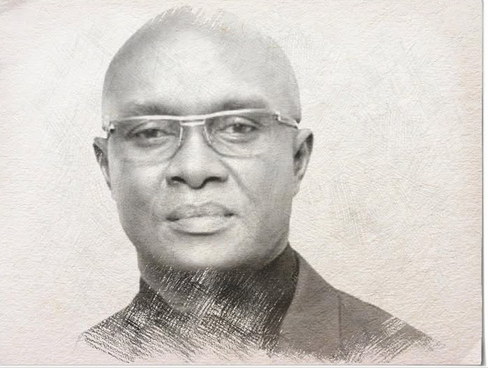The black Camry saloon came out of nowhere, a blur in motion, and slammed into the old man standing quietly by the roadside. There was a sickening thud, the kind that echoes in your bones. The man let out a strangled cry as his body spun in the air and collapsed onto the tar like a discarded bundle—a life suddenly reduced to silence and motionlessness.
Shouts pierced the still air. Some ran towards the crumpled figure. Others froze in shock. The driver of the Camry slammed the brakes, swerved, then attempted to flee—his foot pressing escape while a human being lay motionless behind him.
“Block him!” I said to my driver.
Without hesitation, he veered our Ford Ranger into the path of the fleeing Camry. The vehicle screeched to a halt. This was one late afternoon at Oron Road, Uyo, Akwa Ibom State.
I stepped out. The man behind the wheel was dark-complexioned, round-faced, likely in his mid-forties. He looked startled—caught between panic and shame.
I didn’t raise my voice. I didn’t need to. “You have to take responsibility for your actions,” I said quietly. “Go and attend to the man you just hit.”
He opened the door. Looked around. Saw there was no threat. Then, like a man slowly waking from slumber, he walked toward the man he had almost left behind. By God’s mercy, the victim was still alive. Onlookers helped carry him to the hospital.
That moment—though it passed quickly—tells the story of my life. I believe in accountability. I believe in intervention. I believe in not looking away.
No, I will not see a man bleeding and bruised on the roadside of life and hum a hymn as I pass by, saying, “This world is not my home, I’m just passing through…” Yes, I may be passing through. But while I walk this earth, I will not be blind to its bruises and injustices.
I will not stand by when someone’s child, brother, sister, wife or father is left to die by the roadside of life, while another speeds off into convenient self-preservation.
I will block your flight if I can. I will stand in the breach. I will fight for the just. I believe that the rod of the wicked must not rest upon the righteous. I believe that silence in the face of evil is complicity. I believe that light, when hidden, is a betrayal of its own nature.
And I believe that this calling is not peculiar to me. History has always summoned its bravest fighters for justice from the pulpit.
• Rev. Dr. Martin Luther King Jr. stood on church steps and overturned the edifice of racial injustice in America.
• Bishop Desmond Tutu stood beside Mandela, armed with truth and scripture, toppling the monster of apartheid.
• Dietrich Bonhoeffer, a German pastor, stared Hitler in the eye and said “no” when others bowed.
• Bishop Samuel Ajayi Crowther, once enslaved, rose to fight colonial abuse and uplift African dignity.
They were pastors. Yes. But more than that—they were guardians of the wounded, vessels of truth, voices for the voiceless, watchmen who refused to sleep.
Being a pastor is not easy. Everyone seems to have a user manual on how a pastor should behave.
“Don’t get involved in politics.”
“When you are slapped, turn the other cheek.”
“Don’t speak too loudly and don’t criticize.”
“Just pray and preach.”
“Be heavenly minded—even if the world burns around you.”
Dr. King’s greatest critics were not racists. They were fellow preachers who told him to stay out of “worldly” affairs. But he reminded them that “faith without works is dead.”
So let me be clear: Any pastor who watches as injustice grows tall and thick like a weed choking a nation, and says nothing, must check whether his calling came from God or from cowardice. Any minister who walks past the wounded and lifts only his hands in worship but not his neighbor from the ditch, has confused piety with passivity.
We pastors walk a line similar to footballers. Everyone watching knows how it should be done.
“Why didn’t he pass?”
“Why didn’t he shoot?”
“Why did the pastor criticize that man?”
But pastors are not here to please the gallery. We are not called by popular vote. We are called by a Voice higher than applause—and truer than public opinion.
And that Voice told us:
“You are the light of the world.”
“You are the salt of the earth.”
“Let your light so shine before men…”
Not to flicker in retreat, but to burn through darkness, to expose evil, and to lift the fallen.
So when you see me block a hit-and-run—on the road or in society—know that I am simply walking in my calling. Not because I am perfect, but because I cannot be indifferent. That is my nature. That is my calling.


